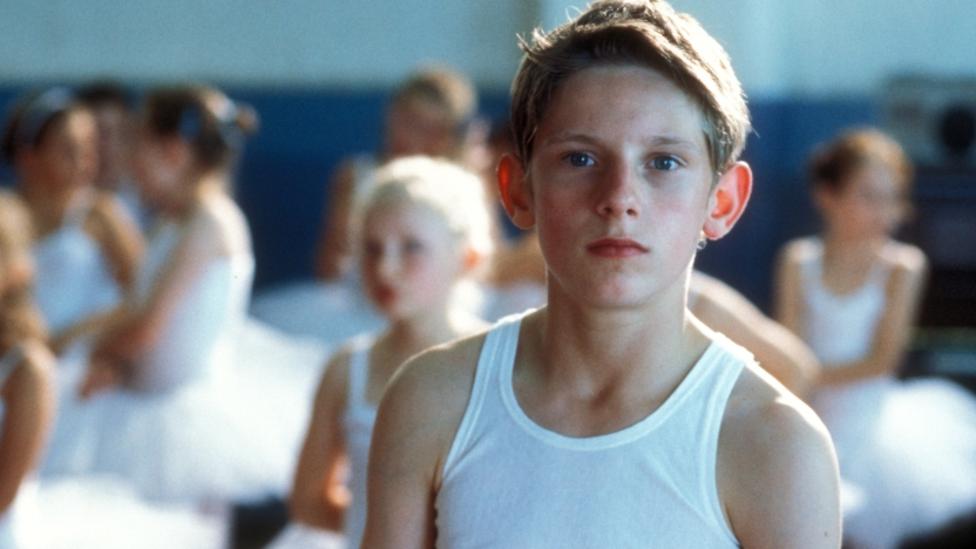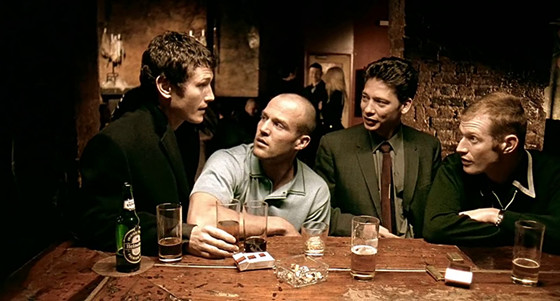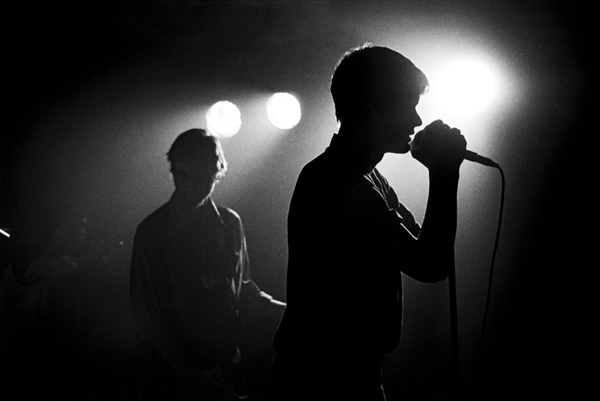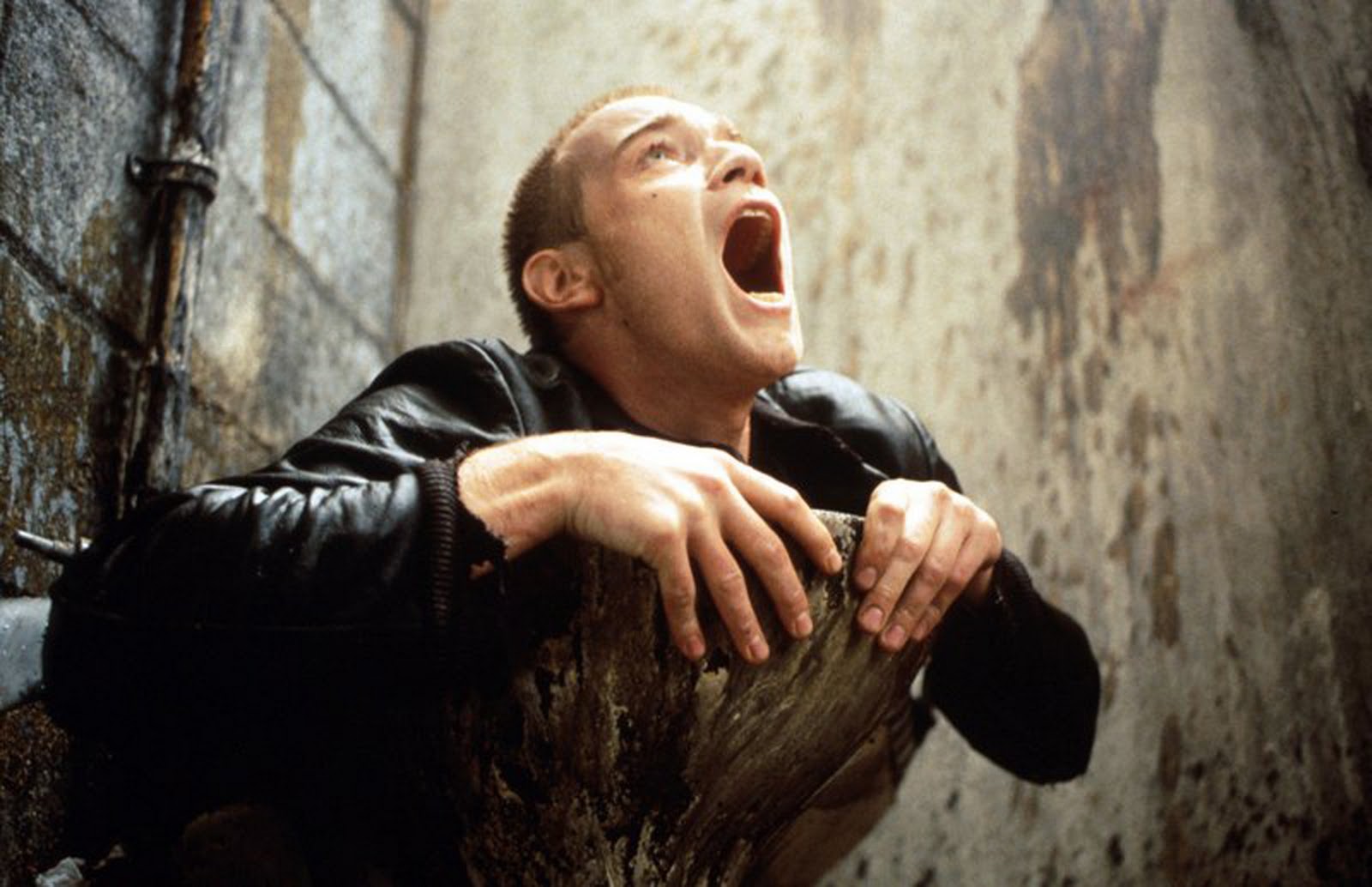5. The Royal Tenenbaums (2001)
Song: Ramones – Judy is a Punk

Introducing the adopted Tenenbaum family member, none other than Gwyneth Paltrow’s alluring and vastly magnetic sibling, Margot, soundtrack savvy director Wes Anderson immaculately utilises the Ramones enthusiastically lively track “Judy is a Punk”. Beautifully matching the rapid lyrics with that of the character’s rebellious, promiscuous and disobedient behaviour, it cleverly mirrors her unruly demeanour with that of the record’s Judy.
In one of her most powerful and elaborate performances, Gwyneth Paltrow portrays the adopted Tenenbaum, the panda eyed Margot, who might be one of the saddest, loneliest creations within the Wes Anderson universe, the enigmatic sibling hides her secrets and true feelings from the world, crafting a devastating design.
As she always remains at a distance from those trying to get close to her, she perfectly renders the melancholic feeling of untouchable as well as inconsolable, seamlessly covering it up with her apparent dissatisfied and unenthusiastic mood. Considered a style icon in the real world of fashion, Margot is a chain smoking, fur coat wearing awkward young woman who remains suitably displeased and unimpressed throughout “The Royal Tenenbaums”.
The self-conscious retro cinematography shows the fascinating Margot in several licentious scenarios with a number of different people, as the audience gets a brief glimpse into the history of her love life over the years, and it’s the use of the Ramones vigorous track from 1976 that ingeniously works as a narrative, telling a tale of her youthful vitality and lust for life, whilst filling in the blanks of what her attitude and mannerisms are likely to consist of with the frantically wayward punk anthem.
4. Billy Elliot (2000)
Song: The Clash – London Calling

A politically charged track about an apocalyptic London, its lyrics circulate around chaotic rioting and disorder in England’s capital, making it somewhat appropriate to soundtrack a scene in which the angry residents of the titular Billy Elliot’s North-East community within County Durham strike out against the local law enforcement. This then results in the eventual arrest of Billy’s older brother Tony who is caught in the middle of the skirmish, which in turn makes the film’s hero miss an audition to attend ballet school.
Whilst The Clash’s genre-splicing record was meant for social commentary with regards to the whole Government and where the country was heading in the 1970’s, it resonated with the same bleak tone the following decade as the masses of northern mining villages that suffered at the hands of the Conservative government’s closing of the pits in the 1980’s, which profoundly led to endless demonstrating and walkouts throughout the upper half of the United Kingdom during Margaret Thatcher’s damning reign.
The Clash’s now legendary “London Calling”, which skilfully mixes reggae basslines and heavy guitar riffs with punk rock vocals has been used in countless cinematic productions, however, never more appropriately than in the “Billy Elliot” scene.
Whilst the majority of the prevailing and uplifting feature focuses on the young boy’s battle against not only his father’s, but societies expectations of what he should be, it has a strong underlying story of the struggle in Northern England during these difficult times, and the scenes in which local communities stood up for their rights are amongst the most powerful and compelling aspects of the film.
3. Lock, Stock & Two Smoking Barrels (1998)
Song: The Stooges – I Wanna Be Your Dog

Director Guy Ritchie’s feature length debut, the crime comedy “Lock, Stock & Two Smoking Barrels”, combined memorable characters, witty dialogue, and a smart narrative with effortlessly cool concepts and a flawless soundtrack to match, a feat he has not been able to match since its release, only coming close with its follow up “Snatch” before descending into a long list of unremarkable and unmemorable cinematic features.
At the turning point of the story, during a fixed game of poker, in which a confident yet guileless Eddy on behalf of the group of friends at the film’s front manages to lose all of their money at the hands of the other crooked gangsters involved in rigging the card game.
As the sheer enormity of the loss sinks into a numbed Eddy painfully looking down at the condemning cards placed by his bent opponent, the droning guitar riffs of The Stooges’ “I Wanna Be Your Dog” match up perfectly with the disorientating camera that follows the hapless Eddy as he stands up and staggers towards the exit.
A remarkably crafted original ode with deliberate audio distortion, something that ironically modern music was attempting to leave behind in the past following its recent advances in technology.
It displays the outrageously lurid sexual desires of the garish and abhorrent vocalist Iggy Pop, its flawless execution and memorability lies in its simple three chord guitar riff and a continuously repeated single piano note which was performed by Velvet Underground’s John Cale who also produced the pioneering 1969 track.
Whilst Iggy and Eddy’s desperations are greatly contrasting, there is still the same bleak anxiety present that perfectly sums up Eddy’s damned predicament that will mould the rest of the films events for him and his friends.
2. Control (2007)
Song: Joy Division – Atmosphere

As described in “24 Hour Party People”, the post -punk band Joy Division were originally known as Warsaw, and were formed following a ground-breaking Sex Pistols concert in Manchester that proved to be a game changer with regards to alternate music in the United Kingdom.
Initially starting as a typical garage punk band, they went on to become pioneers of the post-punk sub-genre, an avant-garde style that took the expressive tendency, feeling and energy of the punk movement and experimentally blending it with gothic and industrial rock sounds.
Based on the astonishing biographical book “Touching from a Distance” written by Ian Curtis’ widow Deborah Curtis, the fascinating film “Control” perceptively focuses on the devastating rise and fall of the suicidal vocalist that suffered with epilepsy amongst other troubling issues. A theatrical debut for the director Anton Corbijn, who had previously worked with the influential band as a photographer, the picture was shot in colour, and later printed in black and white adding a gritty and cool yet hauntingly disturbing feel to the piece.
Premiering at Cannes Film Festival where it picked up a number of awards, “Control” predominantly circulates around Ian and Deborah’s disconcerting marriage, portraying Ian’s extramarital affairs, as well as his own personal struggles during their traumatic marriage and his time with Joy Division, eventually culminating in his subsequent suicide.
A chilling conclusion that builds throughout the piece, its eventuality comes to realisation at the climax of the film, as an unravelled Ian, portrayed faultlessly by Sam Riley, is driven to the edge due to his illness and divided feelings towards his marriage.
A harrowing conclusion, Curtis’ final moments are sensitively reimagined, never claiming to know the truth and only suggesting the reasoning behind the man’s life ending decision.
Whilst the act is never seen, it is the heartrending aftermath and shattering impact it has on those around him that has such a powerful influence. As his body is tragically discovered hanging in the kitchen by his wife, she staggers into the street outside crying for help as the bands mesmerising track “Atmosphere” scores the unsettling scene.
The previously limited edition single “Atmosphere” was originally known as “Licht und Blindheit”, exclusively released in France by record label Sordide Sentimental. It was only following the untimely death of Joy Division vocalist Ian Curtis that it was re-released in the United Kingdom and United States by Factory Records for further widespread consumption.
1. Trainspotting (1996)
Song: Iggy Pop – Lust for Life

As “Trainspotting”, now celebrating its 20th anniversary starts playing, and Ewan McGregor’s lead character Renton begins to recite the exceedingly unforgettable opening ‘Choose life’ monologue, we see him darting through the cobbled streets of Edinburgh on the run from the police.
From this opening scene onwards its profusely diverse soundtrack sets the films manic tone, injecting adrenaline into its soon to be frantically pumping veins with Iggy Pop’s energetic hit single “Lust for Life”. This is the hyper tone that keeps racing through the majority of the frenzied soundtrack as though drug-fuelled itself much like the films characters.
A unique song that paired a perfectly directed opening, “Lust for Life” was co-written in 1977 by Iggy Pop formerly of The Stooges and the late, great David Bowie who somewhat revitalised the failing career of the punk rocker with the creation and production of not only this exhilarating song but two of his solo albums. A feat that a thankful Pop has never shied away from mentioning, stating previously that Bowie salvaged him from certain professional and potentially personal annihilation.
A ground breaking film that not only served as a culturally significance piece of cinema thanks to its widespread discernibility of the prominent rise in clubbing and more alarmingly, heroin addiction, but its celebration of popular era-defining music like very little seen before from a British drama. Its choices embodied a feeling of what Martin Scorsese had been doing since the 1970’s, frequently using its music as an instrument to explain, enrich and shift the narrative.
As soon as its notable drumbeat kicks in, the track is instantly paired with Danny Boyle’s drug powered drama, thanks to its flawless direction that matched the thundering beats with the running footsteps, the lyrics still audible underneath the aforementioned quote.
The track irreproachably serves as a playful introduction to the Scottish group of drug addict friends, fronted by McGregor as they merrily charge through the capital’s city centre, trying to avoid the law and laughing as all the regular people going about their everyday lives who do in fact choose life.
Author Bio: Dan Carmody, born and raised in Doncaster, England. When not working full time as a Civil Engineer, his one true passion is cinema, relating back to the early 1990’s when his mum showed him a lot of horror films way before he should have been allowed, an avid follower of all film genres, both classical and modern. Also enthusiastic about video games, travelling, making lists and cheese.